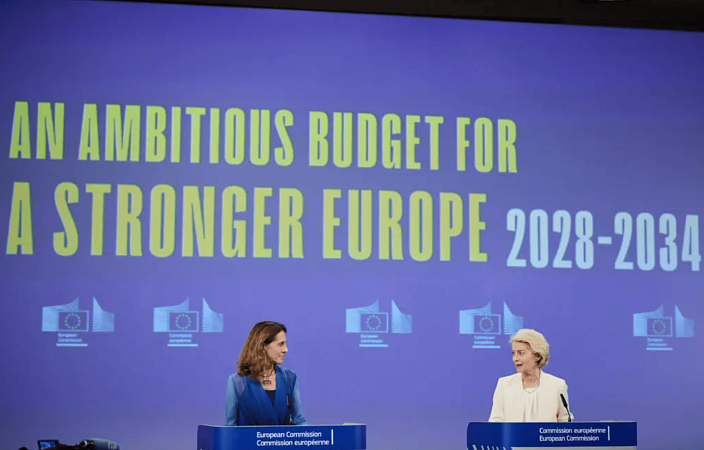The draft includes a doubling of the Connecting Europe Facility (CEF) for transport, along with a tenfold increase in the Military Mobility envelope and continued support for Horizon Europe.
The proposals signal renewed confidence in the role of rail within the EU’s long-term priorities, particularly following earlier concerns that the CEF might face substantial cuts or cancellation. Instead, the Commission has put forward an expanded CEF budget of 50 billion EUR for transport and 17 billion EUR for military mobility.
Horizon Europe, the EU’s research and innovation programme, is also set to receive a reinforced budget of 175 billion EUR. While this suggests strong backing for continued research in transport innovation, the future of the Europe’s Rail Joint Undertaking remains uncertain and will require further negotiation and support.
UNIFE’s General Director Enno Wiebe welcomed the proposal, stating: Policymakers need to be applauded and celebrated in how they made an emphatic call in keeping, and then strengthening CEF, the most EU-focused rail investment vehicle.
UNIFE welcomes the proposal with optimism, but is also aware it will need to advocate hard to maintain this level of ambition, and to ensure rail benefits from efficient enabling conditions and sufficient funding across the different programmes.
UNIFE has acknowledged the complexity of the financial landscape but welcomed the Commission’s goal of improving access to EU funds. The association also called for a continued focus on completing the Trans-European Transport Network (TEN-T) and rolling out technologies such as the European Rail Traffic Management System (ERTMS), which are seen as key to improving interoperability and capacity across Europe’s rail infrastructure.
What’s more, in light of ongoing geopolitical and climate-related challenges, Mr. Wiebe highlighted the importance of ensuring dual-use benefits from military mobility investments and the strategic value of rail in strengthening Europe’s resilience.
The European Commission’s total proposed budget for the 2028–2034 period stands at approximately 2 trillion EUR. This includes provisions to begin repaying debt incurred through the NextGeneration EU recovery plan.
Negotiations among Member States are expected to shape the final form of the MFF in the coming months, with budgetary allocations and priorities still open to adjustment.




